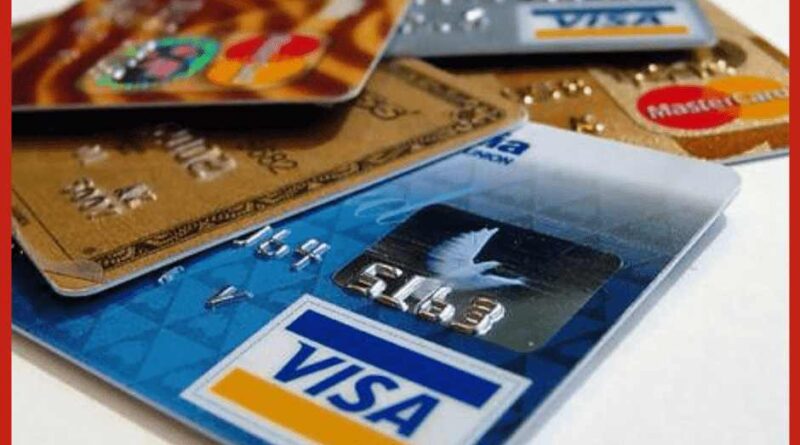Credit Card Fundamentals: From Plastics to Possibilities
Introduction
Credit cards have become essential to our financial toolset in an era where electronic payments have supplanted cash as the de facto currency. Credit cards are crucial to managing our money, helping us secure online purchases, develop a solid credit history, and book flights and rooms for exotic trips.
However, using this power comes with responsibility, and knowing how credit cards work inside and out is essential to avoiding common mistakes.
What is Credit Card?
A credit card is a versatile financial tool that gives people unmatched convenience when making purchases, accessing money, and managing their finances.
A credit card is more than just a piece of plastic; it unlocks a world of opportunities and enables users to conduct transactions both domestically and abroad, both in-person and online.
At its core, a credit card is a form of borrowing that allows you to make purchases on credit – essentially, you’re borrowing money from a financial institution up to a predetermined limit. This credit comes with a responsibility to repay the borrowed amount within a specified timeframe to avoid interest charges and penalties.
Types of Credit Cards
Credit cards come in a multitude of flavors, each tailored to cater to specific lifestyles, preferences, and financial objectives. Whether you’re a frequent traveler, a savvy shopper, or simply looking to build or rebuild your credit, there’s a credit card type designed to align with your needs.
Rewards Credit Cards: Unleash the Power of Earning
Rewards credit cards are the darlings of the credit card world, enticing users with the promise of earning points, miles, or cashback for every qualifying purchase. These rewards can be redeemed for a variety of perks, including travel discounts, merchandise, gift cards, or even statement credits. Whether you’re a frequent spender or a strategic optimizer, rewards cards offer a delightful way to turn your everyday expenses into exciting bonuses.
Travel Credit Cards: Jet-Setting with Added Perks
For the globetrotters and adventurers among us, travel credit cards are a match made in heaven. These cards often come with travel-related benefits such as airline miles, hotel discounts, airport lounge access, and travel insurance. If you find yourself traversing the world or dreaming of your next escape, a travel credit card can be your trusty companion on your journey.
Cashback Credit Cards: Money in Your Pocket
Cashback credit cards cater to the practical spender who appreciates tangible rewards. With every purchase, a percentage of the transaction amount is credited back to your account, effectively putting money back in your pocket. Whether you’re covering groceries, dining out, or filling up your gas tank, cashback cards offer a straightforward way to earn a little extra with each swipe.
Secured Credit Cards: Building Credit Brick by Brick
Secured credit cards are designed for individuals looking to establish or rebuild their credit histories. These cards require a security deposit, which often determines your credit limit. By using a secured card responsibly and making timely payments, you can demonstrate your creditworthiness and pave the way for better financial opportunities in the future.
Balance Transfer Credit Cards: Managing Debt Strategically
Balance transfer credit cards can be a lifeline for those grappling with high-interest debt. These cards allow you to transfer existing balances from one or more credit cards onto a new card with a lower or even zero percent introductory interest rate. This strategy can help you consolidate debt and save money on interest, provided you have a solid plan to pay off the transferred balance within the promotional period.
Business Credit Cards: Fueling Entrepreneurial Ventures
Designed with business owners in mind, business credit cards offer a separate line of credit for business-related expenses. These cards often come with features tailored to business needs, such as expense tracking tools, employee spending controls, and rewards geared toward business purchases. If you’re an entrepreneur or a small business owner, a business credit card can streamline your financial operations.
Student Credit Cards: Navigating Financial Independence
Student credit cards are geared toward college students who are new to credit. These cards often have lower credit limits and are designed to help students learn responsible credit habits while building their credit profiles. They can serve as a bridge to financial independence and offer a valuable learning experience.
Luxury Credit Cards: Elevating the VIP Experience
For those who appreciate the finer things in life, luxury credit cards deliver an array of premium perks, including concierge services, exclusive events, and high-end travel benefits. These cards cater to individuals who value exceptional experiences and are willing to invest in a card that complements their refined lifestyle.
Benefits of Using Credit Cards
Convenience and Ease of Use:
- Credit cards eliminate the need to carry large amounts of cash, providing a convenient and secure way to make purchases in-store and online.
- With the rise of digital wallets and contactless payments, credit cards offer a swift and hassle-free method of completing transactions.
Building and Improving Credit History:
- Responsible credit card usage contributes to establishing a positive credit history, a crucial factor in securing loans, mortgages, and favorable interest rates.
- Timely payments and consistent credit utilization can boost your credit score, opening doors to better financial opportunities.
Fraud Protection and Security:
- Credit cards offer robust fraud protection, shielding cardholders from unauthorized transactions and minimizing liability for fraudulent charges.
- Many credit card issuers provide zero-liability policies, ensuring that you won’t be held responsible for fraudulent activities.
Emergency Funds and Cash Advances:
- In times of unexpected expenses, credit cards can serve as a lifeline, providing immediate access to funds for emergencies.
- Some credit cards also allow cash advances, enabling you to withdraw cash from ATMs when needed.
Rewards and Cashback Earnings:
- Rewards credit cards offer the opportunity to earn points, miles, or cashback on everyday spending, effectively turning purchases into potential savings.
- Cashback credit cards provide a percentage of your spending back as cash, allowing you to earn while you spend.
Travel Benefits and Perks:
- Travel credit cards offer an array of travel-related benefits, including airline miles, hotel discounts, airport lounge access, and travel insurance.
- Some cards even provide travel statement credits, effectively reducing the cost of flights, accommodations, and other travel expenses.
Consumer Protections:
- Credit cards often come with valuable consumer protections, such as extended warranties, purchase protection, and price protection.
- These protections offer added peace of mind when making purchases, ensuring that you’re covered in case of product defects or price drops.
Budgeting and Expense Tracking:
- Credit card statements provide a detailed breakdown of your spending, making it easier to track expenses and manage your budget effectively.
- Many credit card issuers offer budgeting tools and spending alerts to help you stay on top of your financial goals.
Online Shopping and International Travel:
- Credit cards are a preferred method of payment for online shopping, offering a layer of security and protection against potential fraud.
- When traveling abroad, credit cards are widely accepted and often offer competitive currency conversion rates, making them a convenient option for international transactions.
Factors to Consider When Choosing a Credit Card
It takes careful consideration and thorough research to choose the credit card that perfectly complements your financial goals. Each credit card has a different set of benefits, costs, and features, so it is important to weigh a variety of aspects before choosing one.
Credit Score and Eligibility:
- Your eligibility for certain credit cards is significantly influenced by your credit score. To improve your chances of being approved, look into cards that fall within the range of your present credit score.
- If you’re building credit or have a limited credit history, consider secured credit cards or cards specifically designed for individuals with lower credit scores.
Annual Fees:
- Some credit cards come with annual fees, which can vary widely. Analyze whether the card’s rewards and benefits outweigh the cost of the annual fee.
- Many cards offer a fee waiver for the first year or provide benefits that offset the fee, such as travel credits or cashback rewards.
Interest Rates and APR:
- Understanding the card’s interest rates is crucial if you plan to carry a balance. Compare the annual percentage rates (APRs) of different cards to find the one with the most favorable terms.
- If you plan to pay your balance in full each month, the interest rate may be less important than other factors like rewards and benefits.
Rewards and Benefits:
- Consider the type of rewards or benefits that resonate with your spending habits and lifestyle. Whether it’s travel rewards, cashback, or points for specific purchases, choose a card that maximizes your potential savings.
- Assess redemption options and restrictions. Some cards offer versatile redemption choices, while others may limit how you can use your rewards.
Introductory Offers:
- Many credit cards come with introductory offers, such as 0% APR for a specified period or a bonus reward for reaching a spending threshold in the first few months.
- Evaluate these offers and ensure they align with your financial goals and spending patterns.
Foreign Transaction Fees:
- If you frequently travel abroad or make international purchases, opt for a credit card with no foreign transaction fees to avoid additional costs on your transactions.
Credit Limit and Usage:
- Assess the credit limit offered by the card and consider whether it meets your anticipated spending needs.
- Responsible credit card usage involves staying well below your credit limit to maintain a healthy credit utilization ratio.
Additional Fees and Penalties:
- Look into other potential fees, such as late payment fees, over-limit fees, and balance transfer fees.
- Understanding these fees can help you make informed decisions and avoid unnecessary costs.
Customer Service and Support:
- Find out how the credit card company is known for its client service. Access to responsive customer support can be invaluable if you encounter issues or have questions about your card.
Complementary Services:
- Some credit cards offer supplementary services such as extended warranties, purchase protection, travel insurance, and concierge services. Consider these perks if they align with your needs.
Frequently Asked Questions (FAQs)
What is the Difference Between a Credit Card and a Debit Card?
A credit card allows you to borrow money up to a set limit, which you’re obligated to repay with interest if not paid in full by the due date. A debit card, on the other hand, deducts funds directly from your bank account for purchases.
How Do I Choose the Right Credit Card for Me?
Consider your spending habits, financial goals, and preferences. Research different types of credit cards, rewards programs, and fees to find one that aligns with your needs.
Can I have multiple credit cards?
Yes, you can have multiple credit cards from different issuers. However, managing multiple cards requires careful attention to ensure responsible credit usage and timely payments.
Will Applying for a Credit Card Affect My Credit Score?
Yes, applying for a credit card typically results in a hard inquiry on your credit report, which can temporarily lower your credit score. However, responsible credit behavior can offset this impact.
What is a Credit Limit?
A credit limit is the maximum amount of money you’re allowed to borrow on your credit card. It’s determined by factors like your creditworthiness and income.
How does my credit limit get determined?
Your credit limit is determined by factors such as your credit score, income, credit history, and the issuer’s policies. Higher credit scores and incomes typically result in higher credit limits.
Can I Improve My Credit Score by Using a Credit Card?
Yes, using a credit card responsibly can help you improve your credit score. Make on-time payments, keep your credit utilization low, and avoid carrying high balances.
Should I Always Pay My Credit Card Balance in Full?
Paying your credit card balance in full by the due date can help you avoid interest charges. However, paying the minimum balance keeps your account current and prevents late fees.
Can I use my credit card for cash withdrawals?
Yes, you can use your credit card to withdraw cash from ATMs. However, this often comes with cash advance fees and higher interest rates than regular purchases. It’s generally recommended to use your credit card for purchases instead of cash advances.
Are Credit Card Rewards Taxable?
Rewards from credit cards are usually not considered taxable income. However, there can be exceptions, such as rewards earned through a business credit card that is used for business expenses.
What Should I Do If My Credit Card Is Lost or Stolen?
Immediately report the loss or theft to the company that issued your credit card. Most issuers provide 24/7 customer service for such situations. They’ll guide you through the process of getting a replacement card and addressing any unauthorized charges.
Can I Negotiate the Terms of My Credit Card?
While some terms of a credit card are non-negotiable, you can contact your issuer to inquire about interest rates, fees, or rewards. Strong credit history and a good relationship with the issuer may give you negotiating leverage.
How Can I Monitor My Credit Card Activity?
Many credit card issuers provide online account access where you can view your transactions, statements, and make payments. Regularly reviewing your statements helps you stay on top of your spending and detect any unauthorized activity.
Are there any fees associated with credit cards besides annual fees?
Yes, credit cards can come with various fees, such as late payment fees, balance transfer fees, cash advance fees, and foreign transaction fees. It’s important to review the terms and conditions to understand potential costs.



